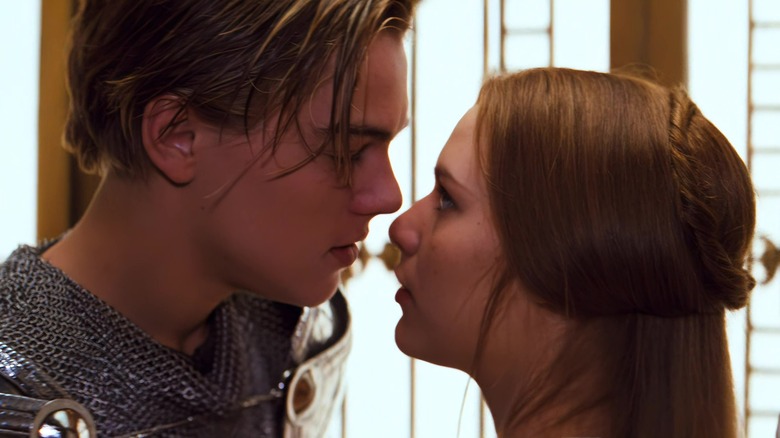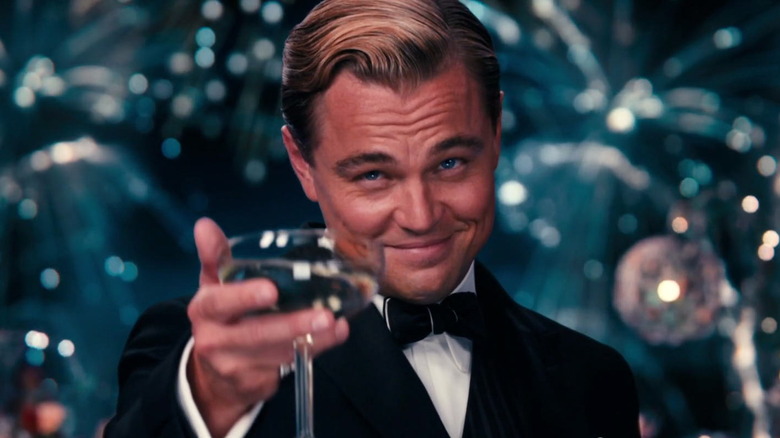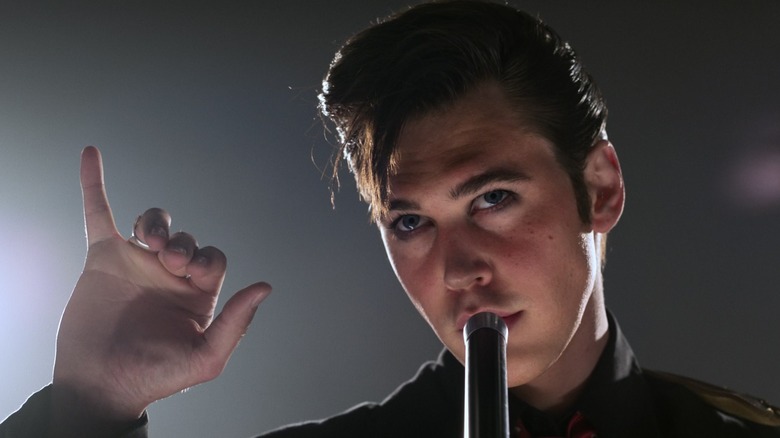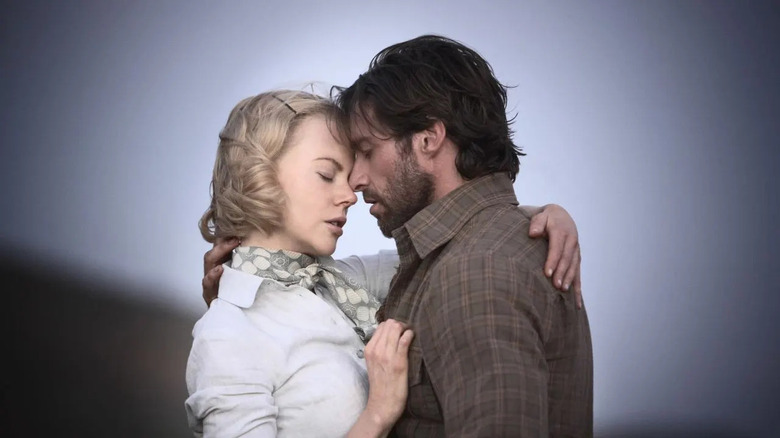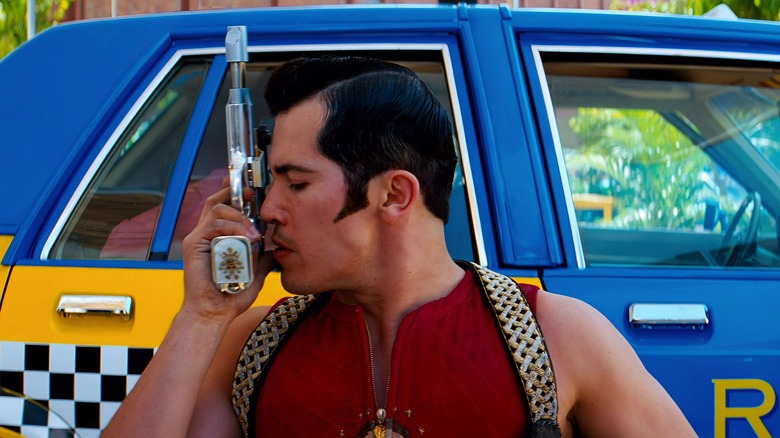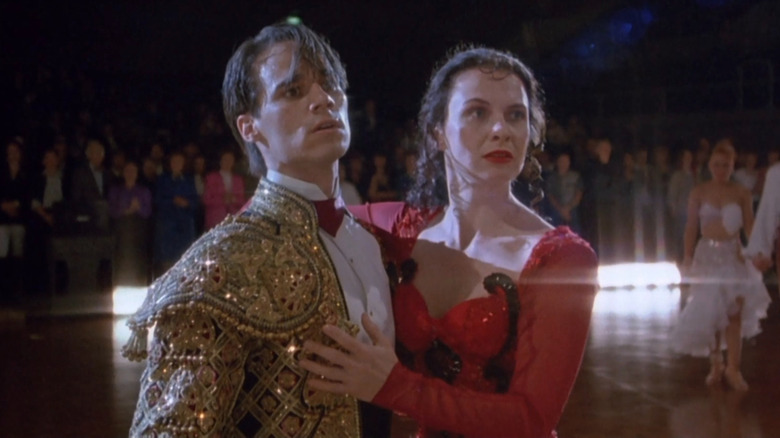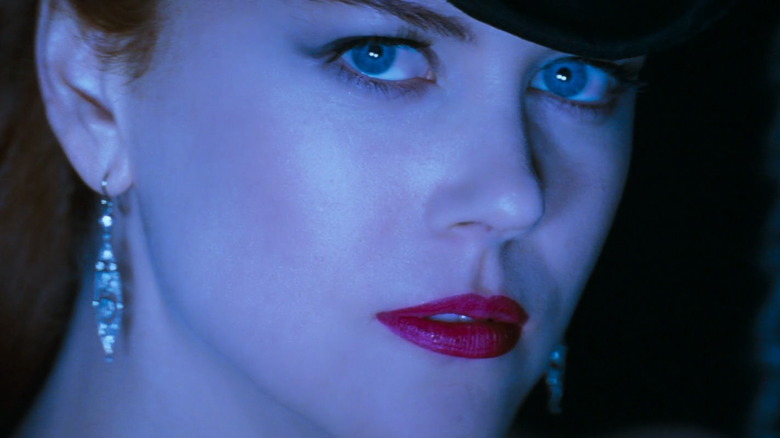Every Baz Luhrmann Movie Ranked
I love Baz Luhrmann. Even when I don't like his movies, I love Baz Luhrmann. In our age, where big-budget movies are systematically stripped of style, personality, and beauty, the Australian auteur is one of the few filmmakers out there able to make every single frame of his motion pictures as dynamic and opulent as they can possibly be. He's a maximalist working on a grand scale, and no one else can make a movie remotely comparable to what he does. Every auteur has their imitators, but Luhrmann feels like a rarity, where his style is so singular and difficult to conceive that nobody even really tries.
As I said, though, not every Luhrmann picture is a home run. He constantly takes big swings, but if you want to be accurate in your baseball metaphors, you must acknowledge that not every swing connects. Because he is such a maximalist, the director can sometimes make a gigantic mess, but the messes are still interesting to examine for how they are messes. One thing you can guarantee with a Luhrmann film is that it will never be boring.
He has only made six films over his 31-year career. After all, planning these extravaganzas (and convincing a studio to give him a ton of money for them) is no easy feat. Let's look back at Baz Luhrmann's half-dozen features and see how they all stack up.
6. The Great Gatsby
If I were to say that Baz Luhrmann has one out-and-out whiff of a movie, it would be "The Great Gatsby." Oh, sure, there's plenty to admire about it. As always, Luhrmann and his production designer/costume designer/wife Catherine Martin created a true feast for the eyes with dazzlingly constructed sets of the lavishly wealthy folks of the Roaring '20s and outfitting every single actor in costumes most people would dream about wearing. But for as eye-popping as the visual spectacle is — all shot in 3D, by the way — it's that indulgence in the opulence that severely undercuts what "The Great Gatsby" is all about.
F. Scott Fitzgerald's original novella is a beautiful critique of wealth and class in the United States. We are meant to first be drawn in to the decadence and eventually grow to find it empty and rather repulsive. Baz Luhrmann loves the aesthetics of that lifestyle too much for that critique to ever take hold. His indulgence goes so far that it stands in direct opposition to the whole point of the story. It's a similar cognitive dissonance to how Zack Snyder portrays the violence in his adaptation of "Watchmen," where he frames action as cool and sexy when it's meant to be terrifying.
Luhrmann throws in other visual stimuli as well, most notably superimposing prose directly taken from Fitzgerald's writing on the screen, which only serves to bombard and distance the audience when he should be taking them deeper into these characters' emotions. In the end, "The Great Gatsby" doesn't come together, but individual moments can be quite breathtaking.
He also introduced the world to Elizabeth Debicki with this film, and we are forever grateful.
5. Elvis
When it was announced that Baz Luhrmann was going to make an Elvis Presley biopic, I could not have been more excited. The biopic — especially the musician biopic — had grown to become one of my least favorite genres, and unless someone with a unique point of view was going to tackle one of these famous figures, I couldn't be less interested. Luhrmann was exactly the kind of filmmaker I wanted to take on someone who is as culturally larger than life as Presley. He could deliver something as stirring as when the man himself started shaking his hips in front of an audience.
With "Elvis," he partially succeeds. On the plus side, he chose Austin Butler to play the titular role. So few actors are able to capture the magnetism and idiosyncrasies of the real-life people they play on-screen, making most biopic performances come across as cheap imitations rather than human beings, but Butler embodies Elvis in a way where you completely understand why this man became an icon. The performance set pieces, in particular, are dazzling, and Luhrmann's visual panache couldn't be more appropriate.
Then there's the rest of the movie. Structurally, this is the same old cradle-to-grave biopic storytelling we've seen countless times, even if he tries to frame it through the perspective of Tom Hanks' Colonel Tom Parker, giving a truly bizarre performance that I still don't understand. Luhrmann throws in a ton of cross-fades, rapid cuts, and modern music, but it all feels like it's trying to hide the conventional nature of the story rather than transcend it. "Elvis" ends up being a mixed bag of a movie. Some really high highs, some really low lows.
4. Australia
I think most people would have expected Luhrmann's 2008 film "Australia" to be at the bottom of this list. Without question, this is the least discussed work in his filmography and easily stands as the filmmaker's biggest outlier. "Australia" is a nearly three-hour epic that is part adventure film, part Western, part romance, and part World War II melodrama centered on race relations between white and Aboriginal Australians. This is Baz Luhrmann's blank check movie, and this is the one case in his career where I go, "It doesn't matter if he hits it. You HAVE to see this swing."
"Australia" was the last film Luhrmann made before his total embrace of digital filmmaking. The film is indebted to classic Hollywood epics like "Gone with the Wind" and "Giant," and its being made in that last gasp of analog helps rein in Luhrmann's craziest tendencies to have it fit alongside those inspirations. Don't get me wrong: there's Luhrmann wackiness all over this picture, and some of it clashes with that epic tradition. But for the most part, he is looking to honor cinematic tradition here and often succeeds. "Australia" is a sumptuous film to watch, even at its most brutal moments, and even if it can't wrangle all of its stories, characters, plot lines, and themes at the end due to its vast sprawl, it's still a film worth you three hours.
Last year, it was announced Luhrmann was working on a new cut of "Australia" that would transform the film into a six-episode miniseries for Hulu called "Faraway Downs." There's still no release date on that, but I will be eagerly anticipating if this new cut improves the slightly messy film (or just makes it messier).
3. William Shakespeare's Romeo Juliet
Figuring out where to place Baz Luhrmann's Hollywood breakthrough film, "William Shakespeare's Romeo + Juliet," was the toughest challenge of this ranking. For a lot of people out there, this modern-day adaptation of Shakespeare's classic is their undisputed number one Luhrmann film, and I believe so much of that feeling comes purely from nostalgia, something I don't really have with "Romeo + Juliet" as I saw it either in or just after college. Instead, I have a lot of very conflicted feelings about this movie. Visually, Luhrmann makes a lot of startlingly beautiful choices for how to communicate this story with images. Much has been said about the first meeting of the titular lovers, played by Leonardo DiCaprio and Clare Danes, through a fish tank, but it can't be understated how gorgeous that moment is.
On the other hand, my enduring love of Shakespeare's words makes this a rather tough sit sometimes. The cast's understanding and ability to communicate the poetry on the page varies wildly, and Luhrmann's maximalist approach results in so many people screaming the dialogue, as if that's the only way to portray passion or emotion. DiCaprio, in particular, really struggles with this, and when he's one of the two principal characters, that creates quite a problem for me trying to connect to the material.
Every time I have watched this movie — or just watched certain scenes from it — my opinion on it varies greatly. Some days, this would be at five on this list, and other days, it could be two. I see "Romeo + Juliet" and "Australia" sort of on the same level. Both are incredibly ambitious mixed bags that have great moments and terrible ones.
2. Strictly Ballroom
Even with his very first movie, Baz Luhrmann arrived fully formed. "Strictly Ballroom" tells the story of Scott (Paul Mercurio), a man who enters into the ballroom dancing competition scene in Australia, and has a penchant for performing his own moves deemed too outlandish and scandalous by the greater ballroom dancing community. Because of this rule-breaking, his dance partner breaks up with him and in steps Fran (Tana Morice), an amateur who greatly admires his bravado.
This was a story Luhrmann started working on as a stage production back in the 1980s at university, and it is extremely clear how similar Scott, the lead character, is to Luhrmann himself. The flair, the drama, the rule-breaking. That is all in Luhrmann's DNA and can be seen in every single one of his films. Although the story originated before they met, you can also draw a pretty strong line between Fran and Catherine Martin, his closest collaborator in work and life. Everything you want to know about Baz Luhrmann's artistic mindset is in "Strictly Ballroom," and the rest of his filmography is just an extension and expansion of that very mindset.
This film was truly the only time when Luhrmann worked with a small budget in his filmmaking career, and despite those limitations, he found ways to maximize every single frame. Nowhere is this more evident than in the dancing sequences, which are just as thrilling 31 years later. It isn't a perfect film. You can tell he wants some of those constraints lifted so he can just go hog wild, but as a first feature, anyone would be proud to have this as their calling card for their career.
1. Moulin Rouge!
This is the one. The dazzling production value, the overwrought melodrama, the wacky comedy, the propulsive editing, the blending of the classical and the modern. It is all executed to absolute perfection in Baz Luhrmann's true masterpiece "Moulin Rouge!" This was a time when the movie musical was dead in Hollywood, and Luhrmann came in and decided to make a jukebox musical that cherrypicks some of the best pop songs of the 20th century, set them in a 19th century-inspired story, and deliver it in the most 21st-century style he can depict on screen. That blend delivers a shot of adrenaline that even the most high-octane action films struggle to match.
In my first ever film class, we took a look at the "El Tango de Roxanne" sequence and went through it shot-by-shot, pouring over the hundreds of edits in that five-ish minute number, and marveled at how every shot was so perfectly composed that you never lose track of a single thread of the story, despite shots lasting only a couple of frames apiece. That momentum runs through nearly the entire picture, yet you never feel exhausted.
"Moulin Rouge!" cemented Nicole Kidman and Ewan McGregor as movie stars, featured a soundtrack I still have on regular rotation, and singlehandedly revived Hollywood's interest in making movie musicals again. Jim Broadbent also delivers a performance I am truly obsessed with and would probably cite as one of my ten favorites ever. It's also a film I could watch at any time, any day, any place. Do I have issues with the movie? Sure, but they only get dwarfed by the staggering achievement that surrounds them. "Moulin Rouge!" is the benchmark by which I measure all other Baz Luhrmann films, and that is a high benchmark.
